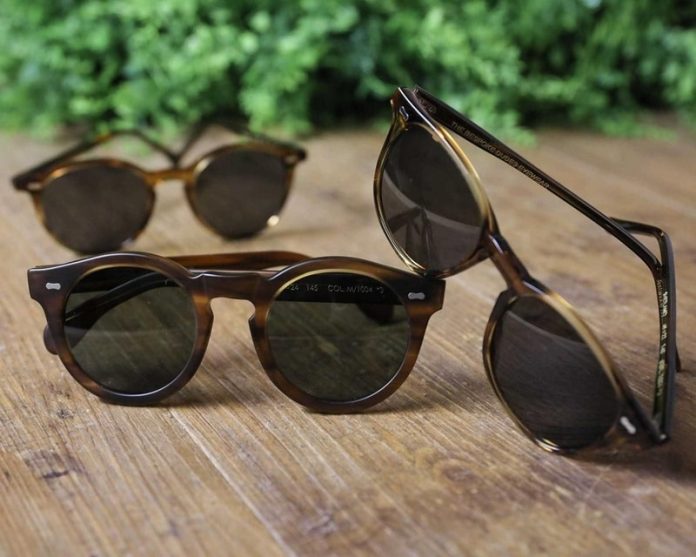Sunglasses are worn by people primarily for two reasons, the first is to protect their eyes from the Sun, and the second is to look stylish. Thus, when selecting a sunglass, people try to buy comfortable frames and glasses that can come in various shapes and colours.
However, in the twenty-first century, people are more conscious of their choices impact on the environment. They understand their responsibility toward protecting their planet. Thus, they are going for environmentally sustainable options for every small or big purchase.
Several companies are offering eco-friendly products, including eco-friendly cosmetics. Nomad Eyewear has the most stylish and sustainable eyewear UK has to offer.
Why Are Eco-Friendly Eyewear So Important?
Usually, the frames of sunglasses are made up of plastic-derived materials. The use of plastic has grown rapidly across all sectors of the economy because it is very convenient to use. However, now people have realised the ill effects of using plastics.
Plastics cannot be broken down easily. Thus, if a piece of plastic is discarded, it will remain intact for years without being broken down naturally. Therefore, plastics are often eaten up by animals on land, and they also end up in the seas and oceans, where turtles, and fishes, eat them up.
Moreover, to make plastic, petroleum products are used as raw materials. Obtaining petroleum is a tedious process that involves drilling in deep mines. Also, the raw material is limited and takes thousands of years to form. Hence, if too much petroleum is drilled out, the planet might become depleted of its natural resources very soon.
Sustainable Materials That Can Be Used To Make Sunglasses
Bamboo And Cane

Bamboo and cane are naturally growing tall grasses. They are hardy and can be cut and shaped into various shapes. Bamboo and cane are eco-friendly because they grow very fast; thus, if their demand increases, keeping pace with them will not be challenging.
Bamboo gains a lot of height; hence a lot of material can be obtained from a single, tall bamboo tree. Thus, even if a small area is dedicated to growing bamboo or cane, even then, a large amount of bamboo pulp can be obtained.
Unlike other crop plants that require copious amounts of fertilisers and pesticides to grow well, bamboo grows well naturally. Thus, growing bamboo does not create problems of harmful runoff of pesticides and fertilisers that eventually affect the freshwater ecosystems like ponds, rivers, etc.
Thus, bamboo and cane cultivation is being encouraged by governments to protect the environment and generate livelihood sources for poor people who do not have land resources or the ability to purchase expensive fertilisers.
Recycled Plastic
The biggest problem with plastic frames is that they create a lot of waste that is incredibly difficult to get rid of. So an easy alternative is to recycle plastic products like water bottles to develop new products.
Old and used plastic bottles can be cut into small pieces, heated, and moulded to get various shapes with cutters and chisels. Using recycled plastic solves the most pertinent issue associated with plastics, like high amounts of waste generation that takes thousands of years to get degraded.
Acetate Obtained From Biological Sources

Plants can be used to produce acetates which can be further modified into forms that can make frames for Sunglasses. The pulp created from plants is treated with acids like acetic acid and other substances that harden and transform the plant pulp.
Products created from plant pulp can be degraded quickly. If such materials are discarded, they break down on their own over time due to the action of microorganisms like bacteria and fungi.
The products created by plant-derived acetates are flexible, and thus sunglasses designed using these compounds are comfortable and easier to use.
Recycled Metals
Metals frames look both elegant and classy on sunglasses. However, if the frames are made up of recycled metals, they also become environmentally sustainable. Metal wastes are discarded in large quantities every single day. Construction sites are a common source for obtaining metallic waste material that can be recycled to produce other valuable products.
Apart from construction sites, ship breaking yards and metals obtained from electronic wastes are major sources of metallic scrap. Once the scrap material has been obtained, it needs to be sorted. The sorting process for iron-containing substances is relatively easy as iron can be separated using magnets.
After sorting the metal, it is transported to a furnace which generates very high temperatures depending upon the metal that needs to be purified. The pure metal thus obtained, be it Iron, Aluminium, or Copper, can be put to varied uses, including making frames for new sunglasses.
Using recycled metal is a more sustainable option than mining for new metals. Mining for new metals generates gases like carbon dioxide and sulphur dioxide, which harm the environment by increasing the earth’s average temperature. Also, mining operations produce heavy metals like cadmium which can be a health hazard for miners.
Hand-pressed Foliage

Sunglass frames can also be made from foliage, that is, plant leaves that have been pressed using hands. The kind of leaf that can be used depends on a number of things like the age of the leaf, the plant from which the leaf has been obtained, etc.
Conclusion
As people worldwide are becoming more conscious, eco-friendly accessories like necklaces, bracelets, handbags, and sunglasses are gaining wider acceptance. Also, governments across the globe are making environmental policies stricter by the day, and celebrities are endorsing sustainable products.
Hence the market share of environmentally sustainable is expected to increase in the near future. These products will not only be good for the planet but can be made from easily obtainable material that usually accumulates as waste. They can be manufactured by simple techniques and thus become a source of employment for poor people.
Making a shift toward eco-friendly materials has multiple advantages. It saves the earth, generates employment, reduces the problem of waste disposal, etc.

